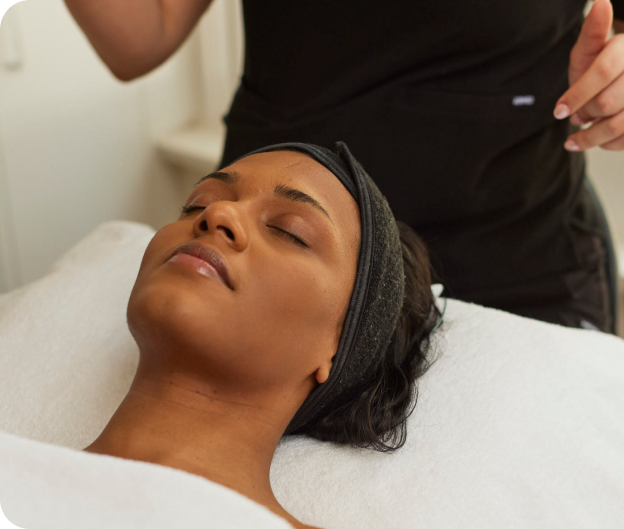
Rosacea is a skin condition that affects the face and can worsen with time if left untreated. It is considered a chronic inflammatory skin condition and should be cared for with appropriate skincare products and treatments.
Summer is a time of year when we often see symptoms of rosacea worsen due to key triggers in the warmer weather. These triggers can exacerbate the appearance of rosacea and cause flare ups even though treatment options are a little more limited. Studies have found that UV exposure and heat heighten the inflammatory nature of the condition. Additionally, those suffering from rosacea are far more likely to get sunburnt. Therefore it is sensical that sufferers must use adequate sun care, and in fact be even more diligent than non-sufferers. Using a physical sunscreen containing zinc and titanium dioxide is the best option for those with the condition or reactionary skin types. It is also important to try to keep out of direct sun light by always sitting in the shade and wearing a hat, no matter how short the exposure.
Another proven trigger that exacerbates rosacea is alcohol. In summer the beautiful weather and longer days tend to encourage more social events which often leads to an increase in alcohol consumption. If you are noticing increased symptoms, minimising the number of drinks during this time can also help.
In winter one of the best treatment options for rosacea is Vbeam laser. It is the gold-standard option and delivers extremely effective results. However this treatment is best done in winter as it can lead to hyperpigmentation in summer (which is a condition in itself which is very hard to treat). When considering in-clinic treatment alternatives, LED wavelengths are an ideal solution for individuals that want to calm the redness and irritation or reduce the small pustular breakouts that might be present on the skin. LED Healite delivers concentrated energy deep into the tissue treating the skin on a cellular level, promoting healing and reducing inflammation. It also has the added benefit of being completely painless and only takes between 15-20 minutes. In fact, many of our clients find this treatment very relaxing. Your Dermal Clinician will assess your skin and choose the appropriate wavelength.
When looking at topical skincare such as cleansers, serums, moisturisers and sunscreens, remember to always choose options that are calming, hydrating and most importantly non-irritating. Certain active ingredients such as Vitamin B3 (Niacinamide) will help to assist in reducing inflammation of the skin and building the skin’s immunity.
Diet is another element to be considered when managing rosacea. As it is an inflammatory condition, it stands to reason that anti-inflammatory foods will assist with flare ups. Some key foods to avoid include dairy, chilli, alcohol, sugar and high amounts of red meat whilst encouraging a diet filled with fresh fruit and veg, nuts, seeds and oily fish such as salmon.
As we know everyone’s skin is unique and it is important to ensure it is being treated appropriately. Skindepth offer one-one-one skin consultations including a full skin assessment and complimentary LED Healite for $75. If you are concerned about your skin or are experiencing flare ups, come in for a consultation with Amelia or Lily.
